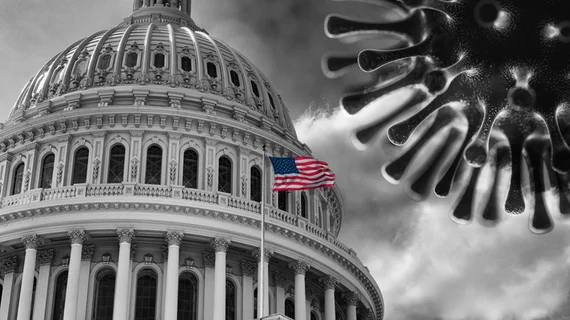COVID-19 public health emergency likely to remain in place for the duration of 2021
The COVID-19 public health emergency—and the provider benefits that come with it—is likely to remain in place for the rest of 2021, officials revealed over the weekend.
Former Health and Human Services Secretary Alex Azar recently extended the declaration another 90 days earlier this month, stretching it into April. But in a letter to governors on Jan. 22, his replacement indicated that another eight months are on tap.
“To assure you of our commitment to the ongoing response, we have determined that the PHE will likely remain in place for the entirety of 2021, and when a decision is made to terminate the declaration or let it expire, HHS will provide states with 60 days’ notice prior to the determination,” Acting HHS Secretary Norris Cochran wrote Friday.
He emphasized the need for “predictability and stability” as states continue responding to the crisis. With the declaration comes greater leeway for physicians, including opening access to telehealth services. The American College of Radiology has advocated for previous extensions of the PHE, and the accompanying extension of Medicare and Medicaid blanket waivers, interim final rule policies, and other flexibilities.
“In light of the PHE extension, you can expect the continued use of other emergency authorities, including Public Readiness and Emergency Preparedness Act declarations and emergency use authorizations for diagnostics, treatments and vaccines,” Cochran wrote. “The department will consider the use of any available flexibility to aid states in their response to the PHE.”
Alex Azar resigned from his post at the top of the agency ahead of last week’s inauguration before being temporarily replaced by Cochran. The new administration has tapped former congressman and current California Attorney General Xavier Becerra as the next HHS chief, but he is currently awaiting confirmation hearings.

